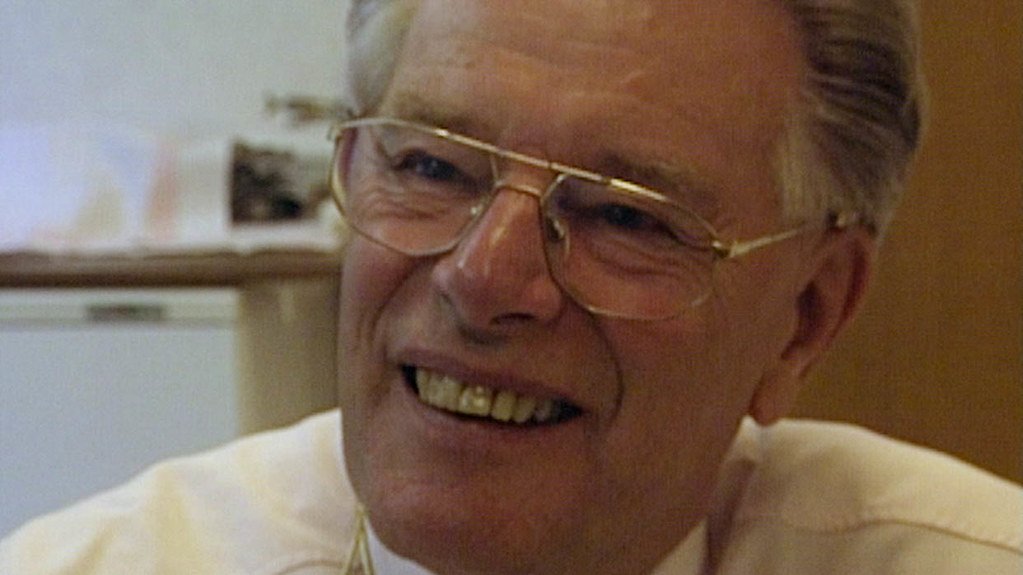Seeds of Deceit, Miriam Guttmann‘s series about fertility doctor Jan Karbaat, asks all the right questions, leaving you with a lot to think about.
Can a person be very empathic and, at the same time, incredibly immoral? Presented at the 2021 Sundance Film Festival as part the official selection of the Indie Series Program and available on-demand throughout the Festival, Miriam Guttmann’s three-part docuseries Seeds of Deceit asks that very same question, telling the disturbing real story of the late Jan Karbaat, a fertility doctor and sperm bank director from the Netherlands who was recently discovered to have secretly used his own semen to impregnate over 65 patients throughout the Seventies and Eighties. Though the documentary’s episodic structure doesn’t always work in its favour, preventing it from exploring its most thought-provoking themes in depth, Seeds of Deceit certainly asks all the right questions, leaving us pondering over matters of morality, identity and human behaviour.
Much of the reason why Guttmann’s series works is the disquieting nature of its subject matter. Human beings have always been drawn to what they don’t understand, and Seeds of Deceit provides us with the perfect case study to delve into the depths of human nature, enabling us to examine the effects of the doctor’s horrific actions on his many victims, starting from the women who put their trust in him, many years ago. In Episode 1 (“A Promise”), we learn that Jan Karbaat presented himself as a friendly, charming professional to his new patients.
This “tall man with a big smile” was “the best in the field”, and one of the few doctors who also treated single mothers and gay couples, which was unusual, at the time. Having spent many years preventing or terminating pregnancies, Karbaat soon decided he wanted to pursue the more idealistic objective of “fulfilling a woman’s wish as quickly as possible, so that she can have the baby she longs for”. And so he started treating women, helping them procreate. Becoming the kind of doctor everyone would trust to have their best interests at heart, and the kind of man who’d ask his patients to call him when they got home, after leaving his clinic, to let him know that they were safe.
And so, despite the feelings of shame many associated with the idea of infertility at the time, and the stigma connected to a practice that was condemned by the church as adultery, families began to visit doctor Karbaat’s clinic – a cheerful looking building recognisable by the harmless statue of a stark perched on top of it. And the good doctor began to treat them, “making the child happen, in whatever way”, accepting a challenge that he personally associated with hunting, for “the thrill of it all”. All appears to be good and well, yet we can’t seem to shake the feeling that something is wrong. As ominous music drives us through the empty corridors of Karbaat’s clinic, we begin to notice the doctor’s unfortunate choice of words. We listen to his former patients’ recollections, and the practitioner suddenly doesn’t seem so good anymore. We notice all the odd clauses in his documents, mentioning “unforeseen results” and responsibility, and asking patients to pretend they had a regular pregnancy. Soon, the word rape is uttered, and everything changes.
A former collaborator of Karbaat describes the doctor as “the wickedest person [he has] ever met” – a man who appeared to be capable of empathy, but who didn’t have a conscience. By that point, it becomes quite clear that Karbaat abused his position of power, harrassed and traumatized women when they were at their most vulnerable, and secretly inseminated his patients with his own sperm, treating their dreams of a family as an opportunity to gain human trophies to add to his collection. As we listen to the many tales of the doctor’s former donors and patients, it also becomes evident that Karbaat was a narcissist, and that he did, indeed, falsify “donor passports” for over 40,000 people, secretly inseminate many children, sexually abuse his patients, and traumatize not only the mothers he treated, but also their children.

Seeds of Deceit does a good job of providing us with a lot of information while also keeping us engaged, with a thriller-esque atmosphere brought on by the ominous, foreboding music, and dynamic shots that make it easier for us to engage with three episodes that ask you to listen to the recollections of Karbaat’s patients, collaborators, and progeny, for pretty much the entire duration of the series. Episode 1 is an excellent introduction to the doctor’s history and endeavours that gets more and more disquieting as you watch. As more and more shocking truths are revealed, not only you can’t help but question the doctor’s motives and mental health, but you also realize just how deeply his abusive behaviour affected so many traumatized women and their families. Unfortunately, the same cannot be said of Episodes 2 (“Offspring”) and 3 (“Liquid Love”).
Episode 2 focuses on the Karbaat children, who were identified after the doctor’s death, when a court order made it possible to analyse his DNA and confirm his patients’ suspicions on their children’s paternity. The episode shows us a series of similar-looking people who share their thoughts about their father. Inevitably, their reactions are very different: Some appear to be genuinely happy to have “lots of brothers and sisters”, while others complain about not having known their real father. One is a nurse, who explains that she thinks she was “attracted to that world” because her father was a doctor. A few are scared of being bad, like their father, and many agree that Karbaat must be the reason why they all share a “recognisable interest in sexuality”. One of them even thinks he recognises Karabaat’s narcissistic traits in himself, and his mother agrees with his judgement, complaining that her son angers easily, and that genetics must be to blame.
By shifting the focus from the doctor to his progeny, Episode 2 invites us to think about the nature vs. nurture debate, and what it is that makes us who we are. Is one’s identity shaped by genetics and heritage, or by upbringing, social relationships, cultural factors and a lifetime of experiences? Can one be born with the narcissistic gene, or is it the newfound knowledge of harrowing events in our past that makes us blame someone else for our own flaws, turning normal child behaviour into the immoral act of a future narcissist? These are all fascinating topics that can open up even more debates on identity and social dynamics, yet, perhaps due to the time constraint and the broadness of the subject, Seeds of Deceit misses the opportunity to fully explore any of these issues in depth, opting instead for showing us clips of the Karbaat children and ultimately coming back to their mothers, purposefully letting us make up our own minds on the matter of nature vs. nurture it raises.
Episode 3 properly introduces us to “the biggest, handsomest, smartest group of donor children in the country” – those very same donors who fathered way more children than they thought they would, who were never screened for hereditary defects, and who had very different features on paper than they did in real life. As we find out about their many children all over the Netherlands (and the world!), we realize that they, too, have been affected by the doctor’s actions. This third episode is perhaps the weakest segment of the series, as, by the time we reach it, we are already aware of most of the events that are explored in it, as most of the issues raised by Episode 3 have already been approached before. Yet, it is still compelling material that adds one more element to Doctor Karbaat’s harrowing story.
Seeds of Deceit is a very good series that provides you with a lot of information on a shocking real story, and invites you to ask many relevant questions on human nature, genetics, social behaviour, and morality. Even if it doesn’t provide answers to all of them, what still remains evident is the extent of the damage caused by doctor Karbaat. Guttmann purposefully chooses to end the docuseries on a positive note, showing us the moment of “rebirth” that comes from the siblings meeting one another and connecting with each other, and leaving it up to us to decide exactly how much they’ve been affected by the events of their past. Perhaps their optimism comes from a desire to leave it all behind. Perhaps they just want to understand each other, or maybe they’re still trying to figure it all out. No matter the answer, Seeds of Deceit remains a thought-provoking, compelling documentary with more than enough wisdom to impart.
Seeds of Deceit premiered online, at the 2021 Sundance Film Festival, as part the official selection of the Indie Series Program, on Thursday, January 28, 2021.

